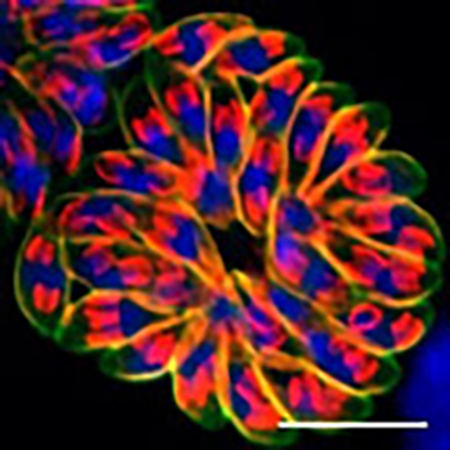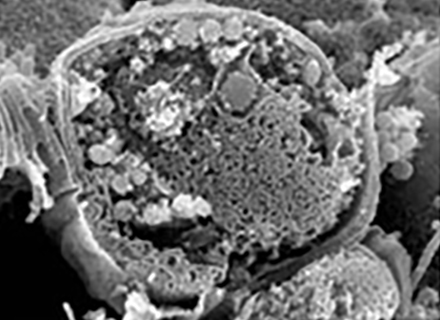Animal Science
Sustainable Animal Environment
Introduction
Animals including human beings have spent their healthy lives using circulating bioresources smartly through interactions with microbes. However, pandemic outbreak of infectious diseases, collapse of food safety, environmental pollution, and energy depletion have happened, once the circulating bioresource system has been interrupted.
Our mission is to solve disorder of animal condition or environmental hygiene caused by the microbes from the veterinary and microbiological viewpoints. Our research subjects are as follows.
- Elucidation of mechanisms of infection, growth, dormant infection, severity, microbe disruption by immune cells for protozoal, viral, and zoonotic infectious diseases.
- Detection of protozoan receptors and practical studies on carbohydrate drugs as antiprotozoal drugs.
- Analyses of destruction mechanism of protozoas by host immuno cells and development of antiprotozoal drugs with peptides and nanoparticles.
- Molecular epidemiological analyses and development of molecular diagnosis system using parasites and their symbiotic viruses.
- Elucidation of protozoan epigenetic mechanism.
- Establishment of animal waste treatment/recycle system by composting and methane production.
- Development of a new microbial fuel battery with low environmental burden.
 Confocal laser microscopy of Toxoplasma gondii.
Confocal laser microscopy of Toxoplasma gondii. Intracellular structures of Cryptosporidium parvum oocyst.
Intracellular structures of Cryptosporidium parvum oocyst.  Bacteria and archaea in the anaerobic digested reactor.
Bacteria and archaea in the anaerobic digested reactor.URL
http://www.agri.tohoku.ac.jp/health/index.html
Keywords
Toxoplama, Cryptosporidium, Malaria, Virus, Zoonosis, Antimicrobial drug, Infection receptor, Carbohydrate, Molecular biology, Molecular epidemiology, Organic resource circulation, Water environment, Compost, Effluent treatment, Microbial community analysis, Nitrogen circulation.
Staff
- Professor Kentaro KATO
- Associate Professor Chika TADA
- Assistant Professor Yasuhiro FUKUDA
- Assistant Professor Iqra Zafar



